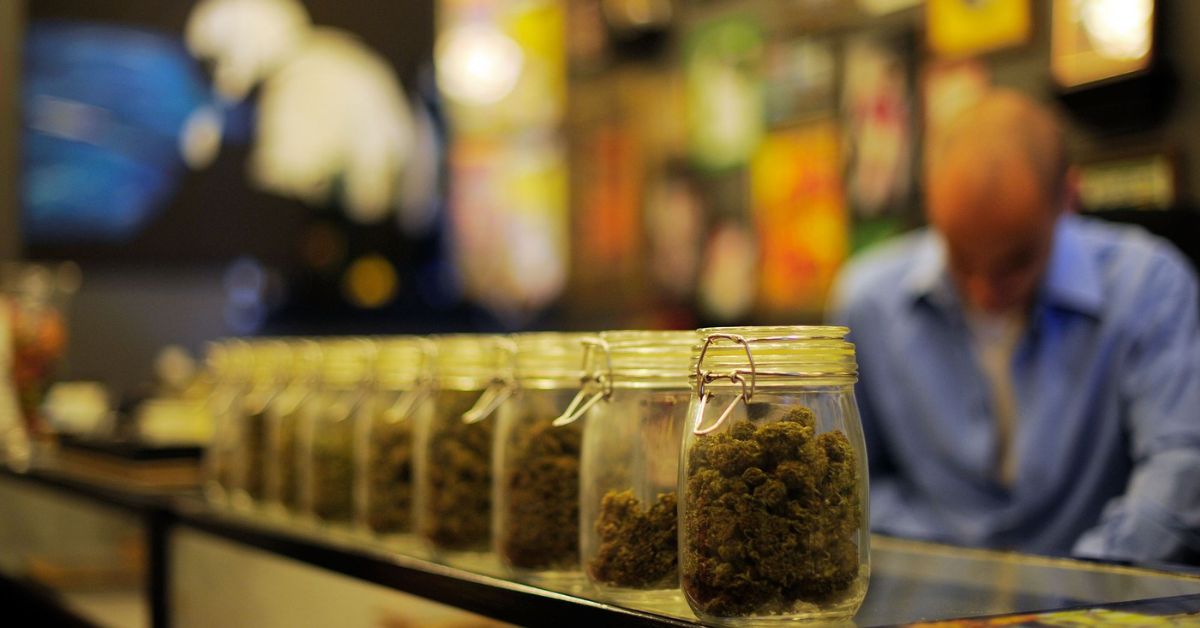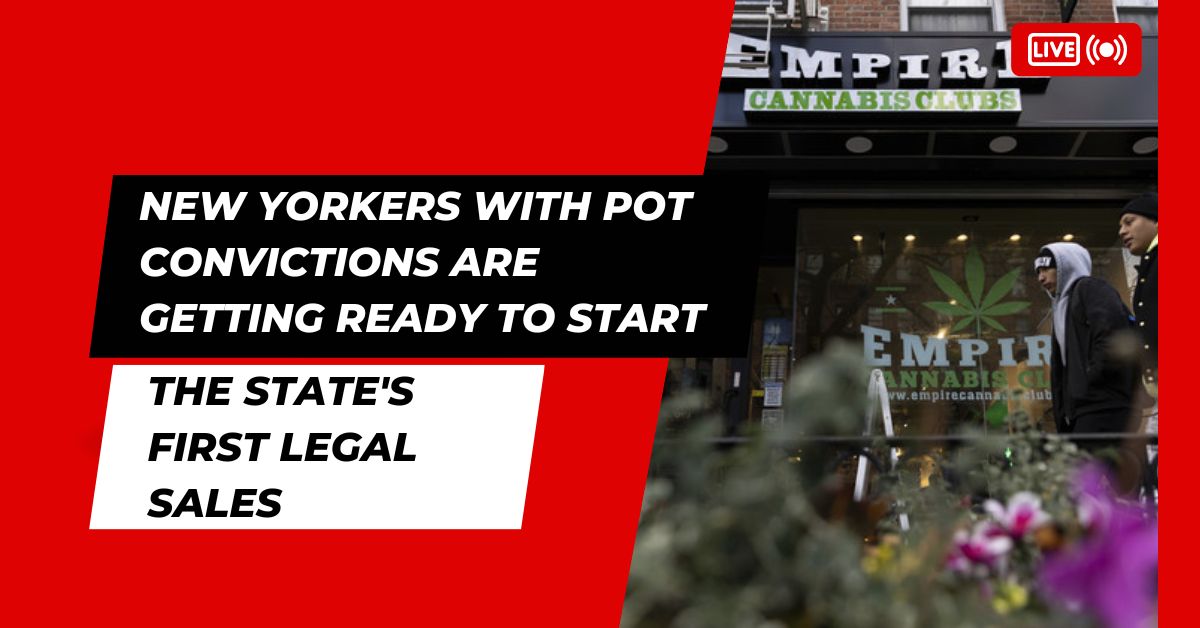William Durham was arrested for having marijuana when he was 23. He says he was young and in the “wrong place at the wrong time”, and that’s why he got caught.
Durham’s family moved from Brooklyn to New York‘s Southern Tier when he was a child. He said the case made it hard for him to find work because he wasn’t “squeaky clean.”
Nearly 20 years later, Durham, now 42, is about to become one of the first people in New York to be legally allowed to sell marijuana in the state. And he’s not the only one with a criminal record which will get the chance. New York’s first-in-the-nation model for legalization gives the first 175 dispensary licenses to people who have been hurt the most by marijuana prohibition.
The rules try to do what other states that have legalized marijuana may not have done right: ensure that underserved communities and businesses owned by people of colour benefit from the industry.
Durham, who lives in Binghamton, was one of only 36 “justice-involved” people, businesses, and nonprofits to get a Conditional Adult Use Retail Dispensary license from the state’s cannabis regulators on Monday. The move makes it possible for him to open one of the first legal pot shops in his part of the state, which is near Pennsylvania.
With the new licenses, New York is one step closer to finally launching legal sales across the state. Since Albany lawmakers made marijuana legal for adults to use recreationally in 2021, more and more illegal sales have occurred. Officials say that the stores could open before the end of the year.
On Monday, the state Cannabis Control Board gave provisional approval to 28 people and businesses to open dispensaries. This is the first of 150 licenses the board plans to give to people who have both a marijuana conviction and business experience. A new $200 million social equity fund will help these licensees find a place to sell their goods and get financial help.

Charles King, the organization’s CEO, said that Housing Works has promised to open a dispensary that will hire people who have been “involved with the justice system.” It also plans to start a program to help those people learn a trade to begin their cannabis businesses eventually. In an interview, he said, “I think that’s kind of the ultimate fulfilment of what the state would like to see happen as far as community-based groups taking on these projects.”
LIFE Camp, a community group in New York City that works to stop violence, wants to use its nonprofit dispensary license to do more social justice work. It plans to put money from its retail cannabis sales back into communities struck by the state’s drug laws.
“When marijuana and cannabis sales were “criminalized” in the 1980s and 1990s, the state made money off of the destruction of our community, and the destruction of people,” LIFE Camp founder Erica Ford said in an interview. “It’s now a billion-dollar business, but you’ve destroyed whole towns because of it. So, we have no choice but to put money into it and help rebuild and fix some of these communities.
On the other hand, Ford disagreed with the state’s decision not to give nonprofit license recipients money to help them get started. She said it was “not good for the nonprofits’ success, which is what they wanted.” King noted that Housing Works has enough money to start a dispensary and is looking to rent a 4,000-square-foot store in lower Manhattan that could open as soon as next month.
“We would love to use the lead time to build our brand,” he said. “We’re starting with one location because that’s all the board will let us do at first. But by this time next year, we hope to have at least two and maybe even three locations, and we’re also looking into the possibility of on-site consumption.”
More News:
- A Writer Sues Trump Again For Slander And Battery Because She Says He Raped Her
- Lexington Establishes A Program To Combat Rising Domestic Violence Deaths
LIFE Camp, on the other hand, wants to open an actual dispensary by the beginning of next year. In the meantime, it is looking into the possibility of starting delivery sales, which will allow all CAURD licensees to sell cannabis “almost immediately,” according to state regulators.
“With all of our dispensary licenses, delivery is also allowed,” Chris Alexander, the executive director of the Office of Cannabis Management, told reporters on Monday. He also said that by 2023, at least one retail location would be open. “We’ll send more instructions to our licensees about how they can do delivery work before their retail location is ready.”
A lawsuit won earlier this month stopped the state from giving out licenses in five areas: the Finger Lakes, Central New York, Western New York, the Hudson Valley, and Brooklyn. The state is fighting the decision, but no matter what happens, it could take longer for some parts of the state to get marijuana shops.
David Feder is a New York cannabis business lawyer and the founder of Weed Law. He represented one of the first license recipients and said, “It’s possible to get this done before the end of the year,” even though it’s still unclear how the state will roll out delivery sales for dispensary licensees. He said, “Everyone is on pins and needles because we are so close.”
If you liked this article, please tell us what you think in the comments section. And don’t forget to check our website Journalistpr.com. for the latest news.

Leave a Reply